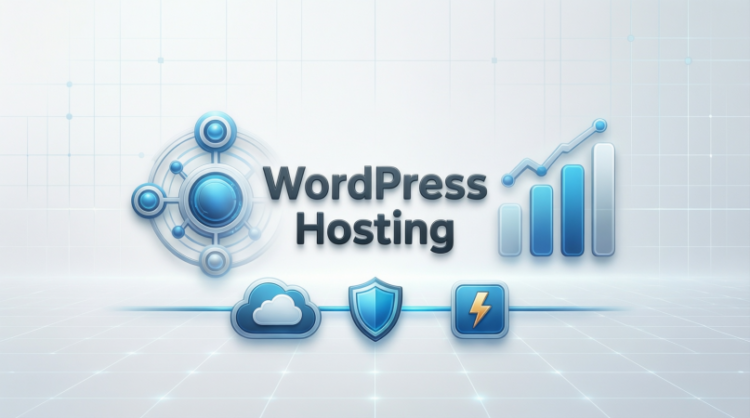
- 1. Enhance Organic SEO Efforts
- 2. Establish Your Business as an Industry Leader
- 3. Educate and Inform Potential Customers
- 4. Capture Long-Tail Keywords
- 5. Build a Versatile Content Library
- 6. Engage with Trending Topics
- 7. Improve Internal Linking and Site Structure
- 8. Amplify Social Media Engagement
- 9. Strengthen Customer Relationships and Loyalty
- 10. Enhance Website Dwell Time and Reduce Bounce Rates
- 11. Drive Conversions and Generate Leads
- Conclusion
Digimagaz.com – In the ever-evolving digital landscape, businesses constantly seek innovative ways to stand out and capture their audience’s attention. Despite the rise of new marketing channels, blogging remains a cornerstone strategy for building an online presence, engaging with audiences, and establishing authority.
As we look toward 2025, the reasons for maintaining a robust blogging strategy have only grown stronger. This article delves into why blogging is more critical than ever and how it can significantly benefit your business.
1. Enhance Organic SEO Efforts
Search engines continue to prioritize fresh, high-quality, and relevant content. Regular blogging provides a continuous stream of new material that can help your business rank for valuable keywords and phrases. Each blog post is an opportunity to capture organic search traffic, making blogging a vital tool for SEO.
By creating well-researched, informative posts centered around relevant keywords, your blog can become a significant driver of organic traffic.
Employing valuable on-page SEO techniques—such as optimizing meta descriptions, headers, and image alt tags—can give your site a competitive edge in search rankings. In a landscape where search engine algorithms are increasingly sophisticated, maintaining a blog is an essential strategy for organic growth.
2. Establish Your Business as an Industry Leader
Blogging is an excellent platform to showcase your expertise. By consistently sharing insights, research, and updates on industry trends, you can position your business as a thought leader.
Readers will begin to see your blog as a trusted resource, which builds credibility and authority over time.
For instance, discussing emerging industry developments, answering frequently asked questions, or providing thought-provoking perspectives can demonstrate your knowledge and leadership in your field.
When potential customers view you as a go-to source for information, they are more likely to choose your brand when making purchasing decisions. This is particularly crucial for B2B companies looking to establish trust and authority.
3. Educate and Inform Potential Customers
Blogging offers a unique opportunity to educate and inform potential customers about your products or services in a non-salesy manner. Educational blog posts can guide readers through complex topics or demonstrate how your product solves a problem, effectively nurturing leads.
For example, a blog that addresses specific pain points and challenges potential customers face can subtly showcase how your business can help.
This approach allows readers to feel educated and empowered, making them more likely to reach out or make a purchase. Educational content not only builds trust but also positions your brand as a helpful and knowledgeable entity.
4. Capture Long-Tail Keywords
In 2025, search engines are more adept at understanding context and specificity, making long-tail keywords even more valuable. Long-tail keywords often have lower competition and higher conversion potential since they reflect a clear, purchase-oriented search intent.
A blog is an ideal place to capture these long-tail phrases, which might be too specific for an entire webpage.
For example, a post titled “How to Choose Eco-Friendly Packaging Materials for a Small Business” targets a niche search that can attract highly interested visitors. By focusing on long-tail keywords, your blog can attract targeted traffic that is more likely to convert.
5. Build a Versatile Content Library
One of the smartest ways to maximize your content efforts is to repurpose blog content across various channels.
A well-written blog post can be transformed into social media posts, infographics, email newsletters, or even video scripts. Blogging, therefore, serves as a versatile foundation for your broader content strategy.
This approach saves time and resources while ensuring consistent messaging across your marketing channels. By building a rich library of blog content, you create a valuable reservoir of information that can be used in multiple contexts, enhancing your overall marketing strategy.
6. Engage with Trending Topics
Staying relevant by engaging with real-time events or trending topics is a powerful way to boost blog traffic and connect with your audience.
In 2025, consumers seek brands that are in touch with current events. Blogging gives you a platform to respond quickly to new trends, industry shifts, or cultural events.
By writing posts that comment on relevant, timely topics, you can attract new readers, spark conversations, and position your business as a responsive and in-the-know entity. This real-time engagement can significantly enhance your brand’s relevance and visibility.
7. Improve Internal Linking and Site Structure
Blogs facilitate internal linking, guiding readers from one piece of content to another within your site. This not only improves user experience by keeping visitors on your website longer but also helps search engines understand the structure and relationships between your content.
For example, a blog post on “The Basics of Digital Marketing” can link to related posts on SEO, content marketing, or social media strategies, encouraging readers to explore further.
Internal linking boosts overall site engagement and helps distribute link equity, enhancing your site’s SEO performance.
8. Amplify Social Media Engagement
Blogging provides a steady stream of content to share on social media. Each new post is an opportunity to engage your followers, drive traffic back to your website, and generate discussions. Blog posts can spark user engagement in the form of comments, likes, and shares on platforms like LinkedIn, Twitter, and Facebook.
In 2025, cross-channel engagement is more important than ever. A blog that regularly produces fresh, shareable content ensures your social media presence remains active and engaging. This amplification can significantly extend your reach and impact across different digital platforms.
9. Strengthen Customer Relationships and Loyalty
A blog offers a unique way to connect with existing customers by providing them with valuable content. Regularly posting about topics that matter to your audience keeps them engaged with your brand and helps build loyalty over time.
Blogs can also be used to gather feedback through comments and surveys, allowing you to refine your offerings and better serve your customers.
By understanding what content resonates with your audience, you can create more targeted and relevant posts. This continuous engagement fosters a deeper connection with your customers, enhancing their loyalty and satisfaction.
10. Enhance Website Dwell Time and Reduce Bounce Rates
A well-organized blog enhances user engagement on your website by providing readers with additional resources and encouraging them to explore further. Well-written, informative posts increase the time visitors spend on your site, known as “dwell time,” which is a positive ranking factor for search engines.
For instance, if a visitor lands on a blog post titled “5 Ways to Use Our Product to Improve Productivity” and finds it engaging, they are more likely to click on related posts or product pages, boosting dwell time and reducing bounce rates. This improved engagement can positively impact your site’s SEO performance.
11. Drive Conversions and Generate Leads
Blogs can be powerful tools for lead generation, especially when combined with calls to action (CTAs) that direct readers toward specific actions. Whether it’s signing up for a newsletter, downloading a guide, or scheduling a demo, blogs provide a non-intrusive way to guide users along the conversion funnel.
Including CTAs within blog content encourages readers to engage further, helping to turn blog visitors into leads and, eventually, loyal customers. This strategic use of CTAs can significantly enhance your lead generation efforts and drive conversions.
Conclusion
Whether you are a small business just getting started or an established brand looking to stay competitive, blogging remains a dynamic and powerful tool for digital marketing in 2025.
Beyond the SEO benefits, blogging offers a myriad of opportunities to engage with audiences, build authority, and drive business growth.
By maintaining a consistent and high-quality blogging strategy, your business can enhance its digital footprint, foster deeper customer relationships, and stay ahead of the competition.





